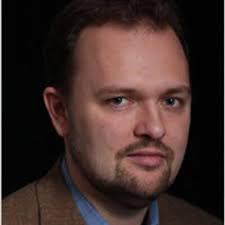Everyone wants to understand America’s religious landscape, but few people know how. Many journalists, for example, try to impose political categories on religion. As a result, they divide religious groups as the “religious left” or “religious right.”
But New York Times columnist Ross Douthat finds this explanation lacking. Religious experience in America is bigger than a clash between the right and left, he argues, and his own diverse religious experiences confirm this hunch.
In this lecture at Southeastern Baptist Theological Seminary, Douthat proposes a different way to think about religion in America. This new explanation helps explain our culture today.
Watch the lecture above. Here is an outline of his lecture below.
People’s identity is controlled more by their political tribe than their religious affiliation.
Douthat highlights three religious tendencies:
- The Secular World Picture
This tendency, found in elite academic institutions and Silicon Valley, holds tremendous influence. It seeks to hold together two contradictory things: a hard-Darwininian, scientific account of the cosmos and an “intensely moralistic account” of human rights, dignity and politics.
- The Spiritual World-Picture
This tendency, found in red state variations (Joel Osteen and the prosperity gospel) and blue-state versions (Oprah Winfrey and spiritual entrepreneurs), is popular among those who like mixing and matching spiritual experience. At its core is the “sovereignty and infallibility of the individual.”
- The Biblical World-Picture
This tendency includes people who still believe in authority and communities that make specific demands of them. This tendency has lost ground because of the sexual revolution, the self-confidence that comes with wealth and because of partisan polarization. “People’s identity is controlled more by their political tribe than their religious affiliation,” Douthat said.
Ross Douthat
 Ross Douthat is a New York Times op-ed columnist who writes about politics, religion, moral values and higher education. His columns appear each Wednesday and Sunday in The New York Times.
Ross Douthat is a New York Times op-ed columnist who writes about politics, religion, moral values and higher education. His columns appear each Wednesday and Sunday in The New York Times.
He is the author of Bad Religion: How We Became a Nation of Heretics, published in 2012, and Privilege: Harvard and the Education of the Ruling Class (2005), and a co-author, with Reihan Salam, of Grand New Party: How Republicans Can Win the Working Class and Save the American Dream (2008). He is the film critic for National Review.
Douthat is a graduate of Harvard University and has appeared on CNN, Fox News, and various other nationally syndicated programs.





Comments and Pingbacks
2019-08-23 14:43:37
Meet the L. Russ Bush Center for Faith and Culture | Intersect
[…] recent years, the CFC has hosted everyone from musician Andrew Peterson to New York Times columnist Ross Douthat. We’ve also hosted conferences on everything from a debate on the Historical Adam to a […]